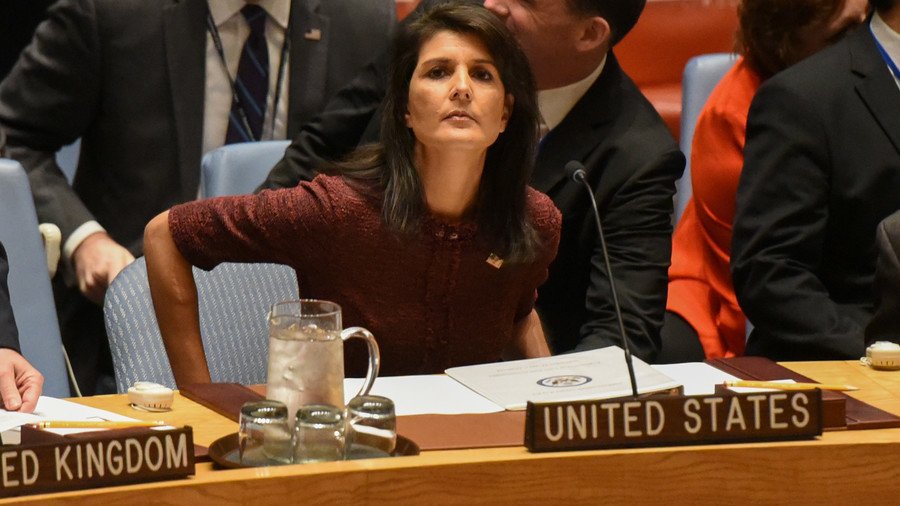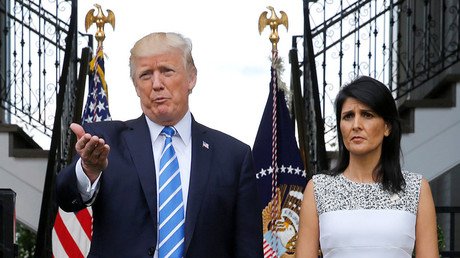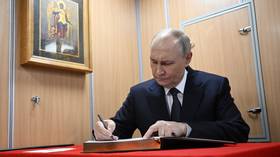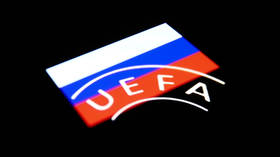Have you been nice or naughty to US this year? Washington again threatens UN voting poopers

The US is unhappy that too many members of the United Nations fail to vote the way the US wants them to. It prepared lists of those that are safe from America’s aid-cutting ire and those who should be afraid – like Cuba and Iran.
The Trump administration has been pursuing the ‘America first’ agenda quite aggressively. US Representative at the UN Nikki Haley was quite vocal in pressuring other members of the organization to do more for Uncle Sam. The UN, as an organization, and other nations, Haley insists, have long been taking US financial contribution for granted while Americans didn’t get what they deserved for it.
The latest release of the State Department’s annual report on voting at the UN General Assembly came with a note to the same tune.
“The American people pay 22 percent of the UN budget – more than the next three highest donor countries combined. In spite of this generosity, the rest of the UN voted with us only 31 percent of the time, a lower rate than in 2016,” the US envoy said in a statement.
That may have something to do with America's much-criticized decision to recognize Jerusalem as the capital of Israel or its failure to vote with the majority of UN nations to condemn the glorification of Nazism. But Haley thinks the disparity is because Americans “care more about being right than popular and are once again standing up for our interests and values”.
Apparently, Washington believes the UN is a vending machine that spews out loyalty in exchange for greenbacks, and, lately, the machine has not been working as good as it should. “This is not an acceptable return on our investment,” Haley said.
“When we arrived at the UN last year, we said we would be taking names, and this list of voting records speaks for itself,” the ambassador’s statement threatened. And the State Department was kind enough to produce the names of nations that had been nice and naughty in 2017.
The ‘nice’ list starts with Israel and goes through the usual allies like Canada and France, ending with Ukraine and the Czech Republic. The ‘naughty’ list includes Iran, Syria and North Korea, Cuba, Bolivia and Venezuela, which hate those economic sanctions the US likes so much, as well as Zimbabwe, Burundi, Turkmenistan and South Africa.
The US threats to cut direct foreign aid, voluntary contributions to various UN programs or possibly mandatory dues to the UN budget, are damaging and only show “that ‘America first’ means ‘America only, we don’t care about the rest of the world,’” Phyllis Bennis from the Institute for Policy Studies Program told RT.
“The UN budget is determined on the basis of the percentage of the world economy in each country. The US is charged 22 percent of the budget because it is considered to have control of 22 percent of the world economy. In fact, that is more than that, so the US is paying less than it should,” she pointed out.
Historically, in the late 1980s and 1990s, the US paid a minimum necessary to retain its vote at the UN General Assembly, but it didn’t quit, she said. That is because, for Washington, it is a useful instrument of foreign policy and has been since the UN’s creation.
Bennis added that the notion that the UN is an institution, in which you invest monetarily to get a return on, “speaks more to the corruption of the profit motive governing US foreign policy than it says about the United Nations.”
Like this story? Share it with a friend!

















